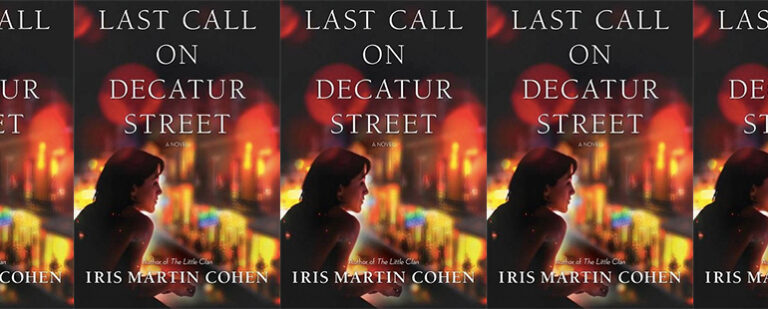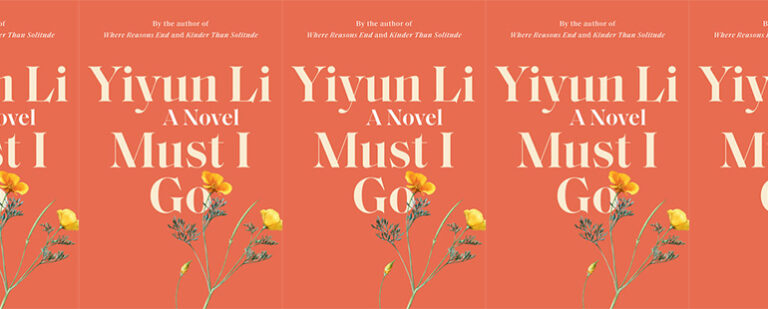Fantasy Blog Draft – Round 2 – Fiction Writers
Welcome to Round 2 of the Ploughshares Fantasy Blog Draft! As far as I, your humble commissioner, am concerned, this is when the draft really begins. The chosen editors have been shuffled into their imaginary Fantasy Blog Team locker rooms, behind the stage of Radio City Music Hall; the unselected editors like Thomas Higginson have been escorted out; and the fiction writers now fill the hall: Frank O’Connor is awkwardly avoiding Katherine Mansfield, Hemingway is at the bar mixing “gin and gins,” Italo Calvino is reading your new novel (the one you’re writing right now), and Bret Easton Ellis is trying to figure out which jerk ordered all the Bellinis the waiter keeps bringing him.
Once six of these writers are teamed with their editors, the debate begins anew. Will Max Perkins be able to wrangle in a more modern writer? Will Dave Eggers be forced to coach Mark Twain on how to use WordPress?
Let’s see how our managers responded.
Editor: Dave Eggers
With the seventh pick in the Ploughshares Fantasy Blog Draft, The Holden Caulbabies select William Faulkner:
Manager Michael Nye on the selection:
Asking the six of us to pick one fiction writer is like giving a starving man a menu. The choices here are endless, and there clearly is no right or best answer. So why does The Holden Caulbabies go with William Faulkner? Because Faulkner might be the most distinctive voice in American literature, possibly the entire 20th century. No one can create such stylistic, dynamic, engaging, stupendous sentences, such vivid characters, with a storytelling that is cheered by the scholars and devoured by the readers. As needed from our team, he has written in all styles: novels (Modern Library ranks four of his novels as the 100 best English language novels of the 20th century), stories and novellas, and poetry, as well as plays, essays, and screenplays, including To Have and Have Not and The Big Sleep (one of my all-time favorites). Inarguably one of the best stylists of our time, what would this distinctive American voice do with the Internet? Just imagine what an experimental and dynamic writer like Faulkner would do with all these new media tools at his fingertips.
Nye’s analysis is spot on: Faulkner may be best known for his at times impenetrable style, but his familiarity with different genres of writing has prepared him for blogging, and this pick will ensure that The Holden Caulbabies blog is produced from “the agony and sweat of the human spirit.”
Eggers and Faulkner is an interesting pairing, and so far The Holden Caulbabies have America covered. We’ll look for them to expand outward (or maintain their ‘Murica-centric approach?) in the coming rounds.
Editor: George Plimpton
With the eighth pick, The Mighty Duck Palahniuks select Kurt Vonnegut.
Manager Benjamin Samuel explains:
Vonnegut’s famous phrase, “so it goes,” can be used in the face of tragedies for all humanity, as well as in response to personal tragedy like getting your work rejected by an editor. “So it goes” is then the rally-cry of every struggling writer, of every underdog author waiting to get their shot. And like Kilgore Trout himself, Vonnegut once worked in obscurity, rejected by mainstream publishers initially—at least that’s what the Internet tells me, and in a fantasy blog draft that’s all the research I need.
Vonnegut is a no-bullshit writer breaking the barriers between genres who speaks to all generations. Poo-tee-weet!
Our managers are definitely on an English-language spree, but there’s no denying that this is a huge, huge pick. Not only does Vonnegut straddle the genre-line, he’s an impressive team player who taught at the Iowa Writer’s Workshop and recognized early in his career that “no man who achieved greatness in the arts operated by himself; he was top man in a group of like-minded individuals.”
Editor: Toni Morrison
With the ninth pick, Buckle Your Corn Belts selects Ben Lerner:
The Kenyon Review duo Marty Kezon and Joumana Khatib on their decision:
Ben Lerner: creative writer in drag. Sometimes a poet, sometimes a fiction writer—who’s to say when he’s either? Regardless, we think he’s a good counterpoint to our other picks. Ben is an upcoming literary star, a golden child of The New Yorker from Topeka, Kansas. He’s vibrant and he’s sharp, and his multi-genre approach makes him perfectly suited to run with the likes of his other team members.
Buckle Your Corn Belts has strengthened its team by adding the youngest fiction writer taken this round to the powerhouse editing skills of Nobel-winner Toni Morrison. This choice may even stymie other teams’ plans for the poet or nonfiction writer they intended to draft—as they mention, he’s a jack of all trades.
Editor: Maxwell Perkins
After having its namesake author stolen by The Mighty Duck Palahniuks, Vonnegut to the Chopper! needs to land a star here. With the tenth pick, the team selects Virginia Woolf.
Manager Brenna Dixon explains:
Virginia Woolf redefined the game of fiction with her nonlinear narrative style. Her use of stream-of-consciousness showcases her ability to make a play on the fly. The woman can think on her feet and hold her own. From across the pond she kept up with the Max Perkins’ Boys Club of F. Scott Fitzgerald and Ernest Hemingway. Who’s afraid of Virginia Woolf? Everyone.
Massive pick. Woolf is now teamed up with archrival Perkins. Although Woolf wasn’t a member of Gertrude Stein’s salon, Vonnegut to the Chopper! probably has the Lost Generation covered on both sides of the Atlantic, and Woolf’s Modernist stylings will help mix up perspectives.
Editor: John Martin
With the eleventh pick, What the Chuckin’ Buk?! selects Boris Vian:
Manager Jordan Kushins on the pick:
Boris Vian is the man to capture—and keep—the oft-divided attentions of an über-fickle Internet. The French multi-hyphenate is best known for his bold fiction, with convention-breaking, genre-busting novels like the beyond-beautiful L’Écume Des Jours; but during his all-too-short life (he passed away in 1959 just shy of his 40th birthday), he dedicated himself to the creative pursuit of all kinds of passions: poetry, songwriting, plays, and jazz, jazz, jazz, as a talented trumpeter. His prose is salacious and surreal, disturbing but delicate, witty and biting and touching and absolutely, positively unforgettable. He can court controversy and back it up with impeccable style and incredible smarts. Vive la France!
Clearly Ms. Kushins has taken advantage of her European scouting team and selected the FIRST non-English-language writer of the draft. The commissioner will take this moment to cast an arched eyebrow of suspicion at the other managers: you can pick any writer from any era in the HISTORY OF THE WORLD, and we’ve largely limited ourselves to the 20th Century United States? I’ve got my eye on you.
Vian is a solid pick, a maverick with many outfits who can rock Spotify, YouTube, IMDB—and his book Foam of Daze is being adapted for Michel Gondry’s upcoming movie Mood Indigo.
Editor: Robert Silvers
With the twelfth pick, Leave it to Cheever selects Donald Barthelme.
Manager Justin Alvarez explains his pick:
I like my writers versatile, and versatility is Donald Barthelme’s middle name. Author, newspaper reporter, managing editor, dedicated professor and mentor—Barthelme was even the director of the Contemporary Arts Museum in Houston. His playful, fragmented short fiction sometimes puzzled, even frustrated, but never failed to be like nothing else you’ve ever read. As Joyce Carol Oates wrote in the New York Times Book Review, his work reflects “what he himself must feel, in book after book, that his brain is all fragments … just like everything else.”
Is this another excellent pick? Is Barthelme not an excellent person to combine with Silvers as an editor, especially given the political bent to each writer’s work? Is Barthelme the only author who could write an entire short story in questions and succeed brilliantly, enough that Salman Rushdie would choose to read it for the New Yorker’s fiction podcast? Whom will Leave it to Cheever select in the next round to pair with these two luminaries?
The sheer number of fiction writers left on the board is overwhelming, and I hope readers leave comments about which they think should have been taken. As far as I’m concerned, these are the top fiction writers left behind by the blog managers:
5. Charles Dickens. The man was a serial serialist: he published his works in installments in newspapers. That wouldn’t be perfect for a blog format?!
4. Haruki Murakami. Not only does he have broad popular appeal all over the world, a large amount of his flash fiction (especially suitable for the Internet) remains untranslated, and he has experience writing a blog—he kept a website sponsored by the Asahi newspaper from 1996-1999 (very early in the Internet era!) where he answered quirky questions provided by readers and kept everyone up to date on his projects. And he’s ridiculously prolific thanks to his intense work ethic, which is often linked to his determination to stay fit.
3. J.R.R. Tolkien. Somebody has to look out for popular appeal, and if the commissioner must be the person to do it, then so be it. Tolkien would give any Fantasy Blog team an epic tale with a built-in mass audience.
2. James Joyce. Almost universally loved by People Who Make Lists, Joyce invented the epiphany story and then said, screw it, that was too easy, I’m going to write the most intricate, complicated books ever created. We had to include him here.
1. Murasaki Shikibu. She invented the novel in the early years of the 11th Century on her own (read: without the influence of the Western canon) in the incredibly stuffy aristocratic world of Heian Era Japan. The Tale of Genji came out over 600 years before Cervantes or anyone else would produce anything to rival the work. She dropped the mic on the novel before the novel (or the mic) existed—BOOM.
Check back in two weeks to see whom the managers take as their wildcard selections in Round 3!


